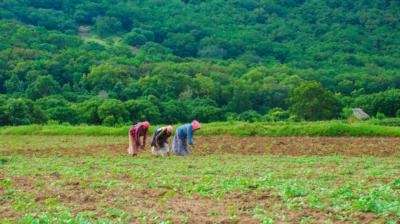Photo: United Nations
Journal Article
| 2014
Environmental resource collection: implications for children's schooling in Tigray, northern Ethiopia
This paper examines the adverse effect of natural resources scarcity on children's schooling and the possible gender bias of resource collection work against girls' schooling. It uses cross-sectional data on 316 children aged 7–18 years collected from 120 rural households in Tigray, northern Ethiopia. The two-stage conditional maximum likelihood estimation technique is employed to take care of endogeneity between schooling and collection intensity decisions. The results revealed that a 50 per cent increase in collection intensity reduces the likelihood of child schooling by approximately 11 per cent. However, we find no evidence of gender bias against girls' schooling.
Read more:
https://doi.org/10.1017/S1355770X13000454
https://doi.org/10.1017/S1355770X13000454






